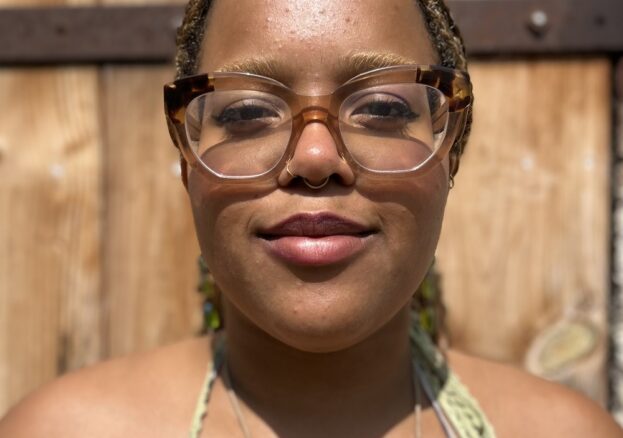
The Halo Code explicitly protects students and staff who come to school with natural hair and protective hairstyles associated with their racial, ethnic, and cultural identities. As one of the founders of The Halo Collective, I want to share how the code started and why it is so important.
In 2020, I was 16 years old in my first year of Sixth Form: an eager, angry, bright-eyed teenage girl, frustrated with what she was seeing and experiencing, and determined to change it. Exactly four years ago, a group of five Black girls from South London pooled this energy into creating The Halo Code: the UK’s first afro-hair policy, aimed at ending racialised afro-hair discrimination in schools and workplaces across the UK.
Our campaign was rooted in our lived experiences as young, Black girls navigating a British education system that heavily policed us. Black children were deprived of simply existing as children. Far too often, young Black girls and boys were robbed of their joy and their connection to culture and heritage. We created Halo to end blatantly racist school uniform policies and the Eurocentric standards of ‘professionalism’ that dominated them.
Research from World Afro Day and De Montfort University found that 58% of Black students experienced name-calling or uncomfortable questions about their hair at school. But this discrimination doesn’t stop there—it seeps into the private sector, becoming as normalized in the workplace as rules about dress codes. One in four Black adults had a negative experience at school related to their afro-hair texture, and this discrimination often continues into adulthood, with one in five Black women feeling pressured to straighten their hair for work.
Afro-hair discrimination and texturism—defined as ‘the discrimination faced by those with coarser and more Afro-textured hair on the premise that hair textures closer to white are more acceptable’—are deeply embedded in systemic racism. At Halo, we knew this long before the campaign began. But after collecting countless stories since the code’s launch, we now understand more than ever that these statistics are not just numbers. Racialised hair discrimination follows us throughout our lives, shaping routines and forcing us to meet expectations designed for us to fail.
The Halo Code, launched in 2020, states:
‘Our school/workplace champions the right of staff to embrace all Afro-hairstyles. We acknowledge that Afro-textured hair is an important part of our Black employees’ racial, ethnic, cultural, and religious identities… We celebrate our colleagues’ cultures, heritages, and identities. We are a community built on an ethos of equality and respect where hair texture and style have no bearing on an employee’s ability to succeed.’
We set out to eliminate words like ‘unprofessional,’ ‘wild,’ ‘unkempt,’ or ‘extreme’ from uniform policies and dress codes for good. And we succeeded.
As of 2024, four years since the launch of the code, over 1,000 organisations, schools, and workplaces have pledged to end hair discrimination for good.
We allowed ourselves to dream big, pushing beyond the punitive norms found in institutions we interact with every day. We asked, ‘What if we centred celebration? What if our schools and workplaces championed radical hope and acceptance?’ We demanded a Black hair revolution that allows young Black children to thrive, moving beyond mere survival or keeping their heads down and out of trouble. At Halo, our mission is for the next generation of Black and Brown people in the UK to feel empowered as they unapologetically celebrate themselves, their beauty, and their history.
Now, at 20 years old and entering my final year of university, I can say that beyond the very real impact Halo has had on thousands of Black people in the UK, it has also helped heal my younger self. A self who never had the confidence to explore, play, experiment, or tend to a part of me that now means more than words can express. I can now say, in 2024—something I couldn’t have said in 2020—that I have a strong chance of starting my career and adult life in a space that protects me from hair discrimination, celebrates my heritage, and encourages me to show up as I am. That, more than anything, is why the Halo Collective does what we do.
Katiann is a co-founder of The Halo Collective, where she has worked on the growth and development of “The Halo Code” for three years on the collective’s schools and workplaces team.
